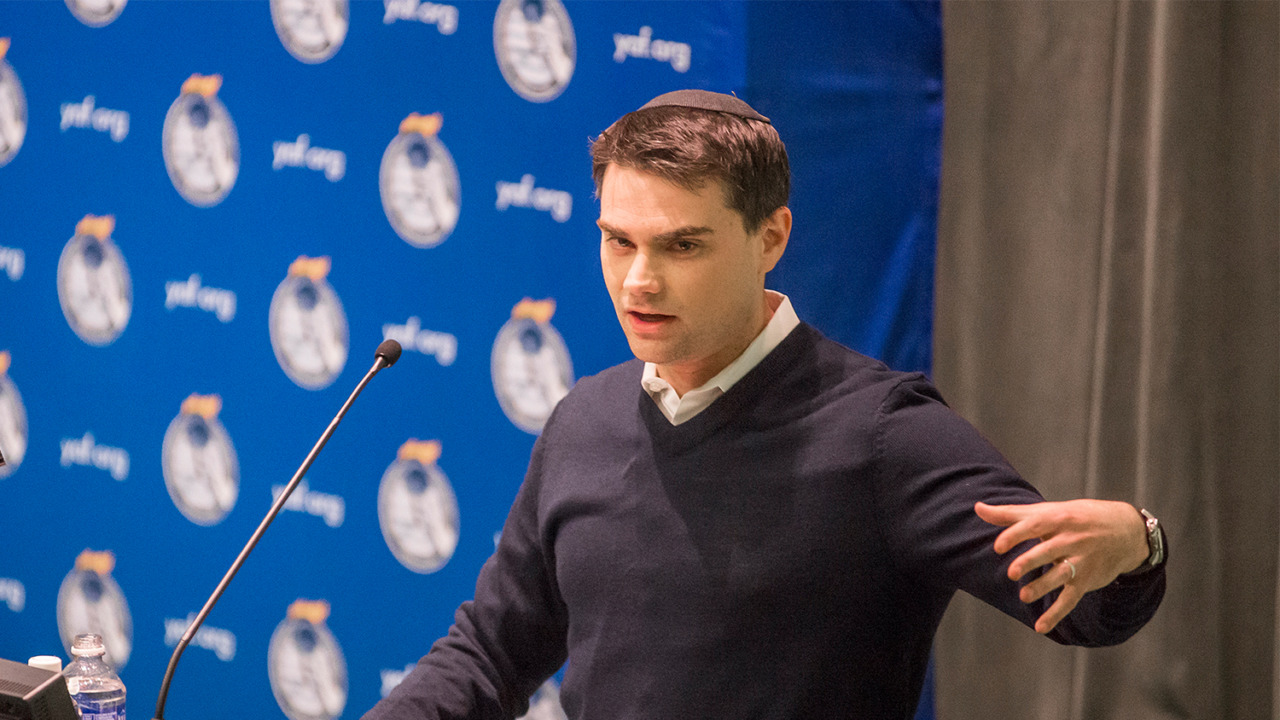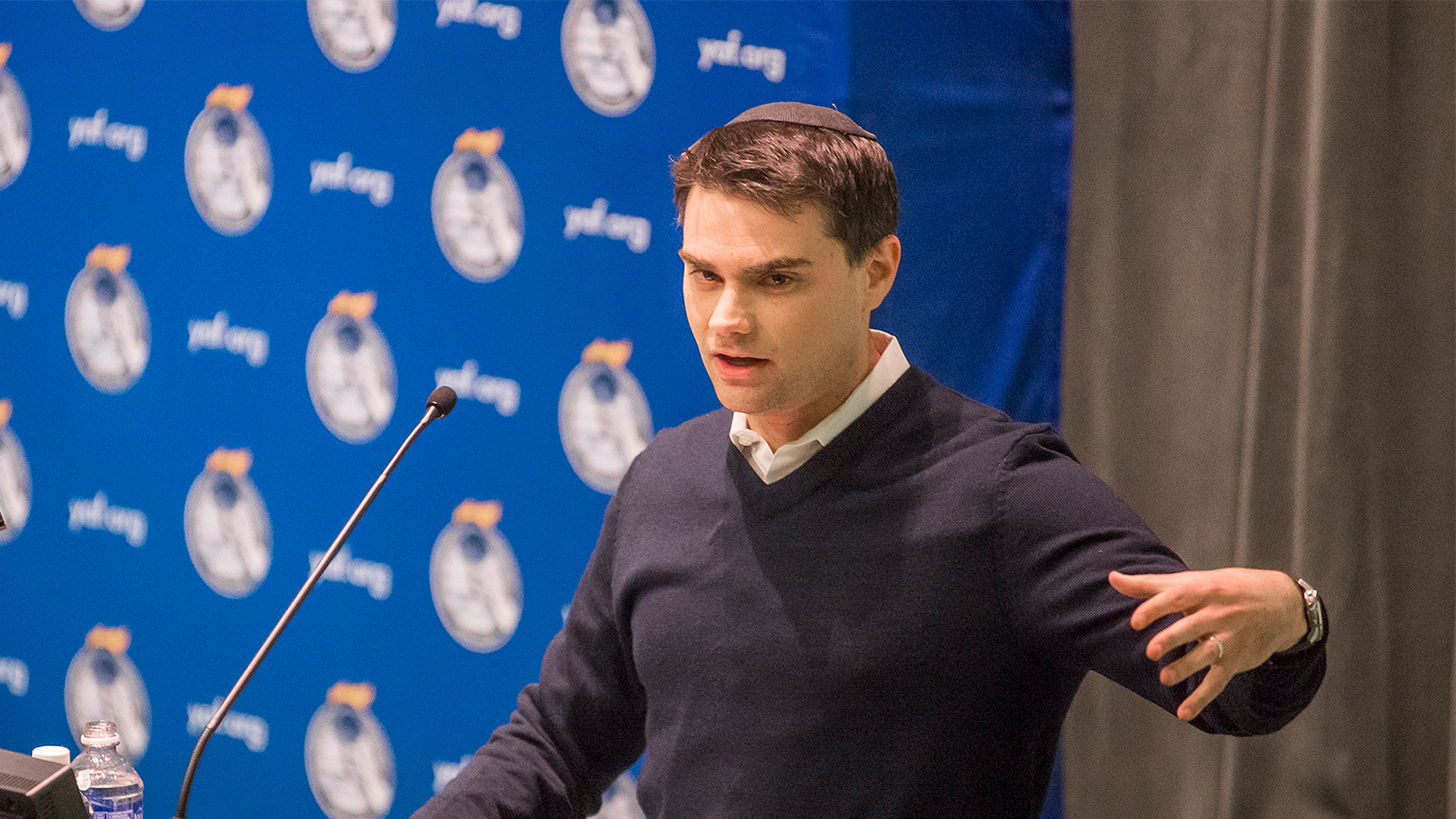A Student Weighs in on Grand Canyon University’s Cancellation of Ben Shapiro Lecture

 Should difficult discussions be eliminated in order to keep the peace?
Should difficult discussions be eliminated in order to keep the peace?
With unanimous committee consent, Grand Canyon University (GCU), the country’s largest Christian university, seemed to think so.
On the morning of Friday, Feb. 1, Young America’s Foundation (YAF) Spokesman Spencer Brown announced that Grand Canyon University’s executive team canceled political commentator Ben Shapiro’s upcoming campus lecture.
Brown wrote: “In a meeting with students Thursday, Grand Canyon University administrators outlined their cowardly denial of Shapiro giving three feeble reasons for rejecting Shapiro: Allowing Shapiro on Grand Canyon’s campus would not be good for the school long-term. Shapiro’s approach instigates a divisive atmosphere. GCU wants to maintain its culture of unity, love, respect and having all student voices on campus heard.”
Following the announcement, members of the GCU community took to social media to express their disappointment.
Grand Canyon, of course, is a private university and may host or decline to host whomever it chooses. But the uproar GCU has experienced is a lesson in what truly creates communal division – silencing a sincere contender. While it might be convenient to silence difficult discussions, it only robs students of the chance to interact with good-faith arguments that may be different than their own. And that does a disservice to the GCU student body.
The Thundering Herd
Many in the GCU community are shocked, confused, and disappointed by the administration’s seemingly unnecessary move to originally block Shapiro.
Originally, in GCU Today, school administrators defended their decision to block Shapiro by pointing to GCU’s record of service and exponential growth. But the university’s strong community atmosphere and family friendly environment are not in question. Every home basketball game begins with a free, alumni family tailgate complete with carnival rides and hot dogs. The school offers tuition discounts to employees and their families. The GCU Lopes contribute hundreds of hours of tutoring to the surrounding school districts.
How this was relevant to their decision to cancel Ben Shapiro’s lecture is unclear.
In fact, it is because of GCU’s exemplary, counter-cultural environment that news of Shapiro’s cancellation was such a disappointment.
Ben Shapiro’s values do not conflict with GCU’s – far from it, actually. His wit and lightning-fast reasoning invigorate many students with an excitement for free-market solutions and Judeo-Christian engagement in the public square. GCU stands by these principles.
Rachel Leingang of the Arizona Republic reported Tuesday, Feb. 5, that GCU’s YAF chapter has previously hosted conservative speakers on campus with no difficulty. According to the university’s statements, the chapter followed similar protocol as before when inviting Shapiro, but the university was not pleased YAF released information that the event was confirmed, even though the administration had not signed off on a date or venue. Notably, this reasoning was not given in the school’s original defense.
According to Leingang’s report, when administration did meet to vote on approving a venue and time, “a committee of students and staff unanimously decided against hosting Shapiro” citing Shapiro’s presence could cause uneasiness in some student circles. President Mueller signed off.
Silence Divides
The temptation to shut down discussion in the face of conflict is incredibly strong in today’s society. After all, with a society that seems increasingly divided, it’s an option that promises peace.
But silencing certain points of view does not unite – it divides. Silencing a community, or even a sector of a community, immediately draws a line between “us” and “them.”
The responses from the community have been unsettling – many were confused by the university’s original lack of reasoning for cancelling Shapiro’s lecture. The healthy exchange of ideas is a lost art. Keeping college students from hearing differing viewpoints under the assumption that a discussion will bring about intense conflict is condescending. First, it assumes differences automatically lead to animosity. Second, it assumes adult students are not able to navigate a world where sincere disagreement is common.
Moving forward, the university decided to personally invite Shapiro to campus without the support of YAF’s national office. When asked why he signed off on Shapiro’s rejection in the first place, Mueller said, “It was about respecting the diversity of the student body.” The university went on to comment in their direct response that their decision was based on “concern that this speaker would bring a feeling of divisiveness.” Surprisingly, GCU stood by its original reason for blocking Shapiro – peace, diversity and fear of upsetting students.
Unequivocally, we, as students, Christians, and professors, must restore the art of engaging with ideas on our college campuses, head on. We must not run away out of fear for what others may think or how they may react. We must run towards them with prepared minds and listening ears, in the name of truth, beauty, and goodness.
Peace and diversity comes about because of, not in spite of, difficult conversations. If all of your ideological opponents stay on the other side of the fence, there is no peace to make and no diversity to enjoy. All that remains is a fence between us and them.
The author is a current GCU student who wishes to remain anonymous.